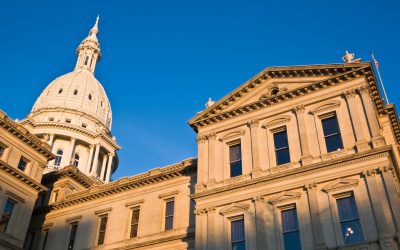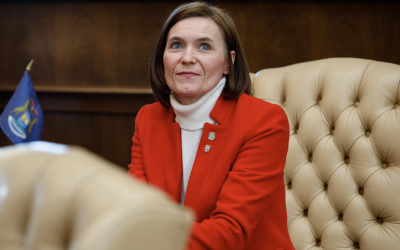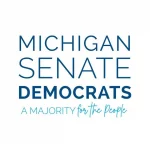Michigan Senate Democrats
Who is your State Senator?
Senate Democrats Unveil the “Building Blocks” Needed to Cut Costs, Improve Child Care and Create Opportunity for Parents and Kids
Transformational proposal would lay the foundation for a strong future for children and parents with tax credit, cash stipend for new parents, and child care improvements LANSING, Mich. (March 12, 2025) — Today at a press conference joined by policy advocates and...
Brinks, Michigan Senate Prevail in “Hall Holdup” Lawsuit
LANSING, Mich. (Feb. 27, 2025)—Today, Court of Appeals Judge Sima Patel ruled in favor of Senate Majority Leader Winnie Brinks and the Michigan Senate in Michigan Senate v. Michigan House of Representatives, the lawsuit brought forth by Leader Brinks after House...
Senate Majority Leader Brinks Comments on Gov. Whitmer’s 2025 State of the State Address
LANSING, Mich. (Feb. 26, 2025) — Senate Majority Leader Winnie Brinks (D-Grand Rapids) has issued the following statement in response to Gov. Gretchen Whitmer’s 2025 State of the State address this evening: “Governor Whitmer made herself loud and clear tonight: our...
Stay Connected
Michigan Senate Democrats
With a #MajorityForThePeople, we are building a Michigan the next generation can be proud of.
Recent Videos
Building Blocks Bill Package Press Conference
🔴 LIVE NOW: Building Blocks Bill Package Press Conference
Senator Brinks - Women's History Month
🔴 LIVE NOW: Senate Oversight Committee
Michigan Senate Oversight Cmte
Sen Maj. Leader Brinks Announces Update on Speaker Hall’s Unconstitutional Mishandling of Passed Leg
LIVE: 1/29 Labor Committee
Sen. Brinks on Rep Hall Obstruction12 22 25
LIVE NOW: Committee on Housing and Human Services — The State of Child Care in Michigan
Get news straight from the source!
Our job is to make sure you know what is going on in your state government. Give us a way to reach you, and we will keep you up to date with the things that affect you and your family.



















